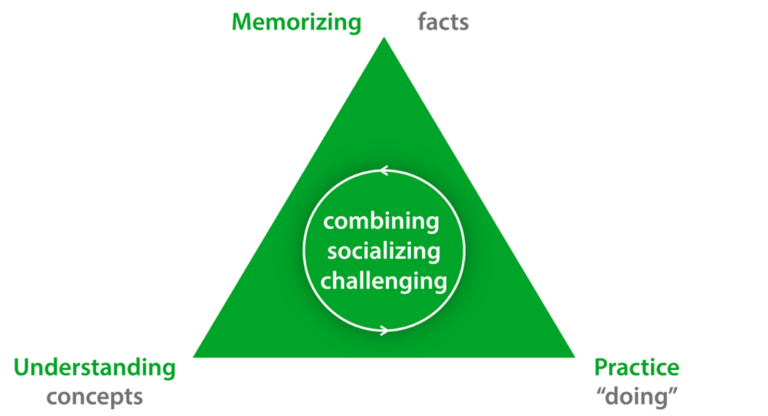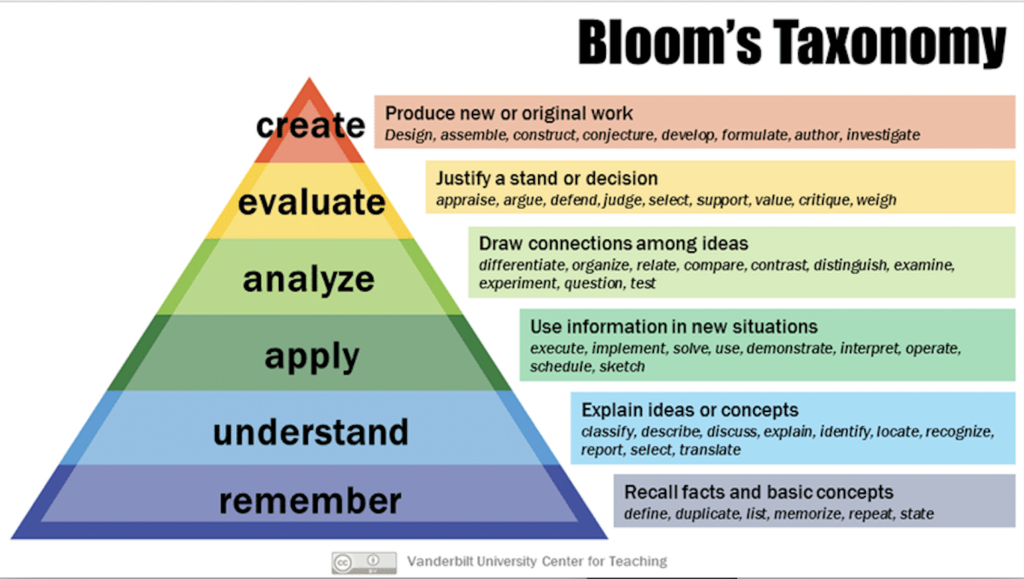INCOSE SEP Exam Preparation (ISEP) Course
Over the course of 5 days, led by an experienced and qualified facilitator, you will be taken on an immersive journey into the INCOSE Systems Engineering Handbook (Fifth Edition). This course will prepare you to take the INCOSE Knowledge Exam comfortably and covers all the information you need to know about applying for INCOSE’s Associate Systems Engineering Professional (ASEP) or Certificated Systems Engineering Professional (CSEP) certification.
- 5 Days
- Public delivery (Online)
- Corporate delivery (In-person or online)
- Retake the course free of charge if you don't pass your first exam!
Get Started Today
View the schedule and register your interest.
Make an Enquiry
Ask us anything or tell us more about your training needs e.g. what are the training outcomes you are seeking?
- Overview
- Full Schedule
- Course Outline
- Learning Objectives
- How Live-Online Works
- Live-Online FAQ
About the course:
Led by an expert in systems engineering with deep knowledge of the SEP certification, our ISEP Course blends presentations, discussions, workshops, and extensive exam practice for a dynamic and rewarding path to SEP certification. Employing advanced adult learning strategies, we aim for participants to efficiently learn and remember the information needed to pass the INCOSE Knowledge Exam on their first try. If not, you can retake the course at no extra cost.
Throughout the course, we’ll explore the role and advantages of systems engineering using the INCOSE Systems Engineering Handbook Fifth Edition, preparing you not just for the exam but for practical application in your work.
Our real-time classes are delivered live online, ensuring an interactive learning environment. After enrolling, you’ll get all necessary details and electronic course materials, with additional resources emailed during the course.
Course recognition:
- This course qualifies for Engineers Australia and Engineering New Zealand (IPENZ) CPD purposes (40 hours)
- This course is accredited by ECSA South Africa for CPD 5 points (ref. INCOSE 23/001)
- PDUs may be claimed for this course for PMI’s family of certifications, including Project Management Professional (PMP)
*As verified by the Coaching Café South Africa.
Course prerequisites:
CTI’s INCOSE SEP Exam Prep course is designed to empower participants with the knowledge and skills necessary to pass the INCOSE Knowledge Exam, required for attaining ASEP or CSEP certification.
While the course is comprehensive and structured to be accessible to individuals at various levels of expertise, participants with prior experience in systems engineering often find it easier to connect with the material on a deeper level, thereby enhancing their learning experience. Having prior experience in systems engineering can also enhance the understanding of the content in the INCOSE Systems Engineering Handbook, thereby increasing the likelihood of passing the Knowledge Exam. However, it’s important to note that prior SE experience is not a requirement for attending the course or attempting the INCOSE Knowledge Exam.
After passing the exam, no experience needs to be demonstrated to attain ASEP certification; however, for CSEP certification, a minimum of 5 years of SE-related experience is required.
We warmly welcome all aspiring professionals who are eager to embark on or advance their journey in SEP certification to attend our INCOSE SEP Exam Prep course.
Note: We strongly recommend having a hard copy of the INCOSE Systems Engineering Handbook for the course. Instructions on acquiring one will be provided. If you encounter any issues getting a copy, please inform us promptly, and we’ll assist you. If a hard copy is unattainable, a digital version will also work.
Upcoming Courses
Register and pay 30 days prior to the course commencement date to receive a 10% early bird discount.
Are you a full-time student? Enter the coupon code STUDENT_DISCOUNT at checkout to receive a 20% discount. Note that proof of full-time student status is required.
(Exclusive to South America)
(Exclusive to South Africa)
(Exclusive to South Africa)
(Exclusive to South America)
(Exclusive to South Africa)
1.1 What is SE?
1.2 Why is SE important?
1.3 Systems Concepts
1.4 Systems Engineering Foundations
1.5 Systems Science and Systems Thinking
2.1 Life Cycle Terms and Concepts
2.2 Life Cycle Approaches
2.3 System Life Cycle Processes
3.1 Quality Characteristics and Approaches
3.2 Systems Engineering Analyses and Methods
4.1 Tailoring Considerations
4.2 SE Methodology/Approach Considerations
4.3 System Types Considerations
4.4 Application of Systems Engineering for Specific Product Sector or Domain Application
5.1 Systems Engineering Competencies
5.2 Diversity, Equity and Inclusion
5.3 Systems Engineering Relationships to Other Disciplines
5.4 Digital Engineering
5.5 Systems Engineering Transformation
5.6 Future of SE
6.1 Case 1: Radiation Therapy – the Therac-25
6.2 Case 2: Joining Two Countries – the Øresund Bridge
6.3 Case 3: Cybersecurity Considerations in Systems Engineering – the Stuxnet Attack on a Cyber-Physical System
6.4 Case 4: Design for Maintainability – Incubators
6.5 Case 5: Artificial Intelligence in Systems Engineering – Autonomous Vehicles
6.6 Other Case Studies
- Daily Quiz Questions
- Sharing of Personal Project Experience
- What is a System?
- Definition of Systems of Systems
- Enabling Systems
- Definition of Systems Engineering
- Use and Value of Systems Engineering
- Generic Life Cycle
- Applying the Handbook to Case Studies
- Linking IPO Diagrams to Each Other
- Verification vs. Validation
- Concept of Operations vs. Operational Concept
- Technical Processes
- Technical Management Processes
- Comparison of Project and Organizational Processes
- Measurement Process
- Pulling It All Together – System Perspective
- Agreement Processes
- Organizational Project-Enabling Processes
- Knowledge Management Process
- Tailoring Process
- Quality Characteristics and Approaches
- Comprehension Style Questions on Quality Characteristics and Approaches
- Systems Engineering Analyses and Methods Part One
- Systems Engineering Analyses and Methods Part Two
- Systems States and Modes
- Uncertainty and Cognitive Bias
- SE Principles and Heuristics
- Technical Reviews and Audits
- Traceability
- Patterns
- Digital Engineering


At the end of the course, the participant will confidently be able to:
- evaluate the Handbook and training materials in such a way as to successfully prepare for and pass the examination
- analyze the key purposes, processes, activities, and relationships of the ISO/IEC/IEEE 15288 generic life cycle processes
- apply the terminology in the INCOSE Systems Engineering Handbook correctly
- relate the INCOSE material, approach and methodology to their existing Systems Engineering knowledge
- explain the elements of the system life cycle and how they relate to projects
- explain the different technical processes that support the system life cycle
- explain the different technical management processes and the role they play in planning, assessing and controlling a system development
- explain tools and techniques to enhance decision-making throughout the system life cycle
- explain the agreement processes and how they influence the system life cycle
- explain the organizational level processes and how they relate to continuous improvement
- explain the relationship between organizational level and project level processes
- explain the tailoring process at organizational and project levels
- recognize the application of systems engineering in different domains
- appreciate the importance of quality characteristics and related approaches
- appreciate the application of systems engineering analyses and methods
- explain the role of systems engineering on the basis of a project or intervention within their organization
- interpret the knowledge gained via reference to examples/cases from their own industry or organization
- evaluate current and future systems engineering activities using the INCOSE Systems Engineering Handbook 5th Edition as a reference and guide
- apply case studies to show how processes may be relevant in the real world.
With CTI Live-Online delivery, you will gain access to our premium INCOSE Knowledge Exam Preparation course content and presentation from the comfort of your own home or office. Get ready for the course in four simple steps:
- Register
Complete our quick-and-easy registration process for the course of your choice. Once you have registered, you will receive a confirmation email with details to help you prepare for the course. You will also receive instructions on how to connect electronically to the course.
- Setup
Before your course begins, you will be given a download link where you may access and retrieve your class files. Please install and configure the web conferencing software on your device/s.
- Preparation
Prior to the course, you will receive course materials with details for preparation. Please print any required documents to have handy during the course (this will be specified in the courseware email). This is also the time to ensure that you have a copy of the INCOSE Systems Engineering Handbook Fifth Edition – a hard copy is strongly encouraged!
If you run into any trouble, we’re here to help!
- Join your course
On each day of the course, you are invited to connect to the virtual conference room 15 minutes prior to the scheduled starting time. Here, you will be greeted by your facilitator and the other learners. At the scheduled time, the course commences!
Additional information about live-online courses:
- Desktop sharing: The web conference facility provides learners with an up-close view of the facilitator-controlled window. Here, you will view the course content, receive workshop instructions, and share and discuss workshop progress with your facilitator. You will be able to discuss notes and diagrams drawn in real-time by the facilitator while in dialogue with learners.
- Visibility of participants: We encourage all learners to make use of the webcam on their device to maximize the learning experience. This ensures learners and facilitators will be able to see each other, and everyone will have visibility of the speaker. CTI does not take responsibility for negative impacts on learning as a result of participants having their camera off.
- Discussions: Learners can “raise their hand” virtually to get the facilitator’s attention or may contact engage with the facilitator and other participants via the chat facility.
- Breakout Rooms: Participants will conduct most workshops in teams and will utilize the breakout room facility to engage via video, voice or text chat. Each group will nominate a scribe to share screen and use the course-provided templates or the web platform’s white board to capture feedback from the group. The facilitator will drop into the breakout room to assess the teams’ progress during workshops and to answer any questions from the team.
Q: Does the course use pre-recorded training videos?
With CTI Live-Online training, you will participate in a virtual classroom and interact with the facilitator and other participants in real-time. The value of our training comes from these interactions as participants are motivated to engage actively during the training week therefore, sessions are not recorded unless in exceptional cases. This is unlike any on-demand course since this course involves a high degree of interaction between the facilitator and class participants.
Q: Do I need to download software to participate?
Yes, you will be emailed instructions to download web conferencing software on your chosen device/s. The software is free to download and use.
Q: Is the platform secure?
The web conferencing software has a number of features to ensure that classrooms are secure. CTI is following best practices to ensure the security of our virtual classrooms, including enabling the waiting room feature and requiring a password so that only permitted guests can join the classroom.
Q: Do I need anything other than the web conferencing software installed and an internet connection?
You are encouraged to have some means of taking notes and drawing diagrams on screen. If you have access to a tablet or phone that allows you to do free-hand sketching, that could be a bonus.
We recommend that you maintain a cell phone, landline, Skype, or WhatsApp link at hand, capable of accepting domestic and international calls. We will request your contact number during the registration process.
Q: Where is the course facilitator located?
The facilitator delivers the training course live from one of our studios worldwide.
Q: How will I participate and receive assistance?
By using a microphone/headset or computer audio, you can listen to and speak with your colleagues and the course facilitator. Simply ask a question using your microphone, or alternatively raise questions and comments with your facilitator via chat or email.
Featured Course Reviews

An excellent course with a great mix of presentation and interaction. The presenter never had us doing the same thing long enough for us to lose focus or interest.
BAE Systems, James Morton, United Kingdom

Thank you for offering such a comprehensive course. I found the material really useful and definitely feel that I am in a better position to take the test after attending the course.
Booz Allen Hamilton, Participant, United States of America

CTI’s ISEP exam preparation course has led to over 30 of our engineers becoming INCOSE ASEPs, leading to CSEPs and also ESEP
BAE Systems, Participant, United Kingdom

The broad overview and the insight on the PM side was good. I also enjoyed the team management module together with the acknowledgement of the realism required in project planning.
Carl Zeiss Optronics Pty Ltd, Participant, South Africa

Good balance of presentation and workbook/workshop activities. I liked the training style a lot.
CTI Live-Online, Participant, Australia

I have learned the concepts and a lot of processes and methodologies. They will be very useful for me to do a good job.
AVIC, Participant, China
